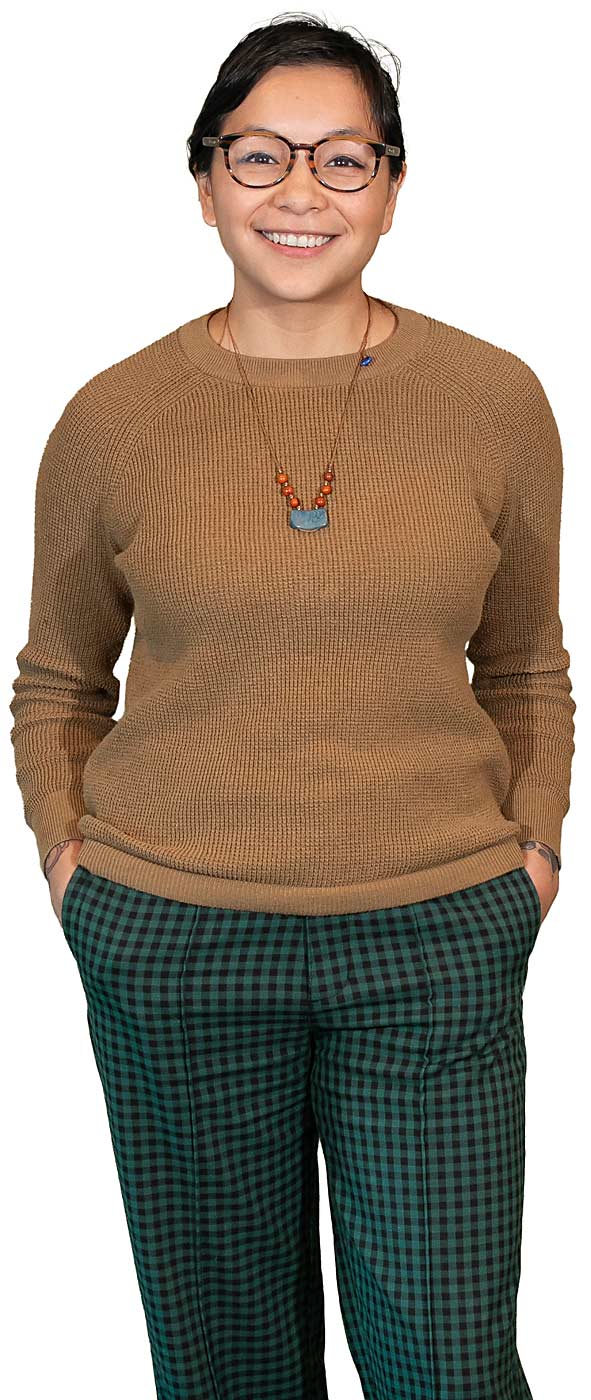family background/ Monique earned a degree in integrated plant science with a focus in viticulture and enology from Washington State University. She is the daughter of Sandra and Michael Gonzales.
age/ 33
hometown/ San Antonio, Texas
crops/ grapes
business/ North Slope Management
How did you get your start?
I am from a multigenerational family who’s worked in agriculture and I’m first-gen born in America, and my family’s from Piedras Negras, Mexico. When my grandfather and my grandmother were younger, they used to come to the States and farm asparagus in Walla Walla.

I didn’t know that history growing up. When I was talking about going to college and where I would move, my grandmother, Gregoria Mauricio, told me these farm stories and was really distressed to find out that I wanted to leave San Antonio, Texas, to pursue a career in ag.
When she was working on farms, she was not getting paid a lot of the time. For her, that experience was really hard, and she didn’t want me to be cast in that same role. Things have drastically changed.
I went to school, and I have a really good job working for North Slope. It’s interesting to be here and to circle back to some family roots without really knowing it.
How did you find your way into the wine industry?
I was in the service industry for about 10 years, and I did really well financially. Being first-generation and part of a marginalized community born in poverty, my biggest focus was that I needed to make money and get out of there.
Even though I did really well in service, I absolutely hated it. But as a part of service I got to connect with wine, and I started working in really nice restaurants where the chef was adamant about us doing wine classes. So, every week we’d do a wine class and have a sommelier take us through all these incredible wines. My interest started from there.
I realized that I’ve got to learn more about this. After that my life became more about studying on my own time, and that was when everything changed and clicked.
I was like, I want to understand more about this process because there’s all these neat things going on. As a winemaker, being able to play with natural elements and create a beverage that describes the land or translates into a story for someone is really impressive.
From then on, I just started studying wine. I self-studied wine then found the V&E program at the University of California, Davis or Washington State University. I choose WSU because I felt my money would go a little bit farther.
When I moved up here, everybody was so welcoming. They’re like, “What can I teach you? What can I give you to thrive?” — and that solidified the journey for me. In the beginning, I thought everyone’s going to know that I’m from a big city and I’ve never driven a tractor. I’ve never done anything on a farm and I don’t know any of this stuff.
I was worried it was going to be obvious, and that I don’t belong here. But every scenario that I went into, everyone was like, “How can we help you?” That’s what kept me in school and chasing my curiosities and learning more about everybody.
What were some of the things you learned in school that you use today?
Starting out in school, there were a lot of IPM classes. Learning a lot about integrated pest management, about native bees or insects and how they help or hurt vineyards. I was learning how we can balance pest populations and keep a balanced ecosystem.
It’s kind of an artistry, if you think about it. You don’t want to go in there and completely eliminate a species. For instance, one pest may be really interested in the grapevine, but if we plant rose bushes, they’ll then go to rose bushes. Not only do the roses look nice, but pests will stay away from the vines.
The V&E program really fed into my curiosities of plant biology, horticulture and what it means to be a steward of the land.
What would you advise other young growers?
If your professor tells you there’s an internship — take it. If your professor asks you if you want to do lab work — take it. When the director of the V&E program asked me if I wanted to do lab work on smoke taint even though I felt like all of that stuff was so over my head — just take it.
You’ll learn through the experience even if you think the titles of things sound really science-y or that you’re not ready for that — just keep pushing forward. Keep talking to people to keep your focus on whatever it is that really makes you feel passionate.
As long as you’re pushing forward with whatever makes you feel happy, then at the end of the day, you’ll end up learning a lot. Any opportunity that you get, whether it’s your professor or it’s somebody in the industry that’s offering to mentor you in some kind of way — take it.






Leave A Comment